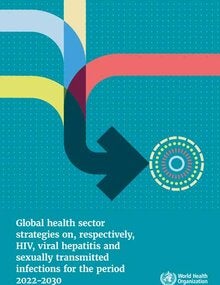Overview
Global health sector strategies on, respectively, HIV, viral hepatitis, and sexually transmitted infections for the period 2022-2030 guide the health sector in implementing strategically focused responses to achieve the goals of ending AIDS, viral hepatitis B and C and sexually transmitted infections by 2030.
The 2022-2030 strategies recommend shared and disease-specific country actions supported by actions by the World Health Organization and partners. They consider the epidemiological, technological, and contextual shifts of recent years, foster learnings across the disease areas, and create opportunities to leverage innovations and new knowledge for effective responses to HIV, viral hepatitis, and sexually transmitted infections.
The strategies call for a precise focus to reach the people most affected and at risk for each disease that addresses inequities. They promote synergies under a universal health coverage and primary health care framework and contribute to achieving the goals of the 2030 Agenda for Sustainable Development.
The Seventy-Fifth World Health Assembly requested progress reports on the implementation of the strategies in 2024, 2026, 2028 and 2031, noting that the 2026 report will provide a mid-term review based on the progress made in meeting the strategies’ 2025 targets.
|

